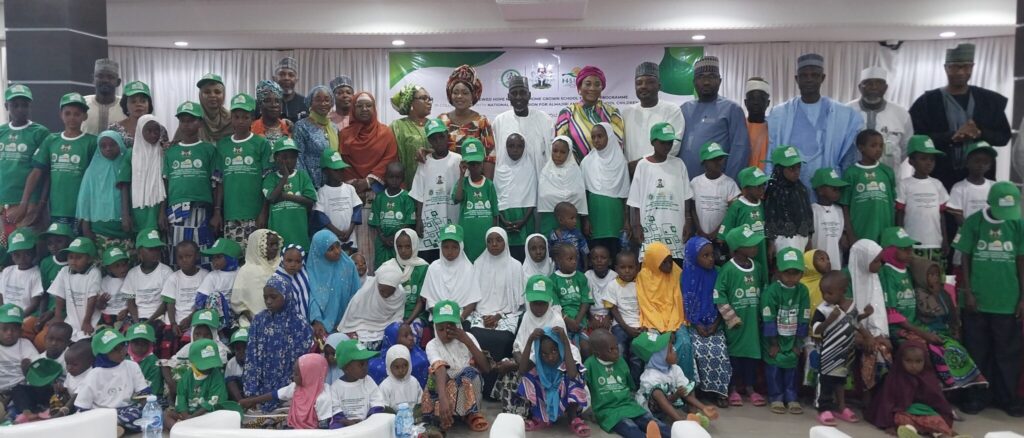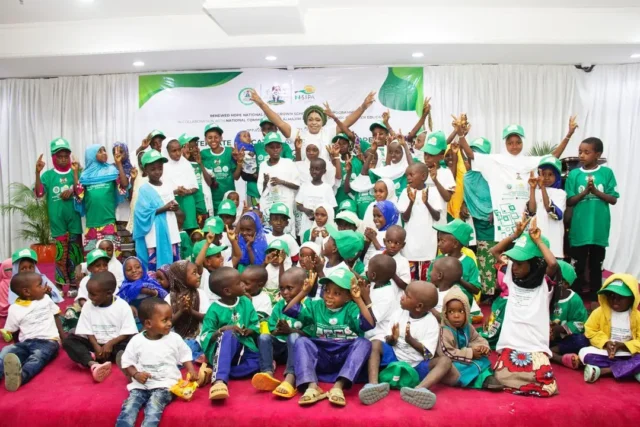In a resolute move to confront Nigeria’s education emergency, the Federal Ministry of Education (FME) has forged a vital partnership with the NEEM Foundation. Announced on July 6, 2025, via the Ministry’s official X page, this collaboration signifies an ambitious national campaign aimed at reclaiming the futures of as many as 18 million children who have slipped through the cracks of Nigeria’s educational system.
Table of Contents
Over 18 Million Children Deprived of Education
Nigeria currently ranks among the global leaders in out-of-school rates, with a staggering estimate of 18.3 to 18.5 million children — approximately 60% of whom are girls — not enrolled in any form of formal education. This crisis extends beyond lost academic opportunities: it heightens the risk of early marriage, teenage pregnancy, poverty, and poses significant barriers to Nigeria’s long-term socio-economic development.
In public remarks on July 4 during a courtesy meeting with NEEM leadership in Abuja, Minister of State for Education, Professor Suwaiba Said Ahmed, emphasized the dire consequences of excluding girls from education. “When a mother is not educated, the future of the child is at risk,” she warned. These remarks crystallize the urgency driving this new partnership.
Social Inclusion at the Core: Turning Policy Into Action
The alliance promises to pivot from rhetoric to coordinated action through:
- Inclusive Policy Design: Initiatives tailored to integrate marginalized out-of-school children—particularly girls—via supportive educational pathways.
- Community Empowerment: Collaborating with educators and civil society to tackle stigmas deterring school attendance, especially around gender and early pregnancy.
- Psychosocial Care: Building NEEM’s trauma-informed models into mainstream classrooms to foster healing and resilience.
Heavy reliance on crisis-sensitive frameworks is essential in northeast regions still recovering from decades of conflict and displacement.
NEEM’s Transformative Track Record
This collaboration brings NEEM’s expertise centre stage. Since its founding, NEEM has pioneered robust programs—including ‘Counselling on Wheels’—impacting over 20,000 individuals in conflict-impacted regions like Maiduguri.
Their trauma-informed schools in Borno offer accelerated learning and psychosocial support, enabling 31 insurgency-affected girls to begin education anew and find renewed stability and ambition.
NEEM also emphasizes values-based education—instilling peace, honesty, tolerance, and integrity alongside foundational skills—a holistic model now primed for adoption at scale by the FME.

National Budget Reflects Bold Commitment
The government has allocated N50 billion to education in its 2025 budget, reflecting rising political will to address learning inequality and structural reform. This fund is earmarked for:
- Creating second-chance and accelerated-learning pathways.
- Training teachers in trauma-sensitive pedagogy.
- Integrating community-based psychosocial support services.
Targeted Interventions: Girls, Vulnerable, and Displaced
While the partnership is nationwide, special focus lies on girls and regions battered by Boko Haram unrest.
- Gender equity: Interventions targeting girls at risk from early marriage or pregnancy.
- Conflict-affected zones: Programs in northeast Nigeria will complement, and in some cases integrate with, existing infrastructure, such as the Lafiya Sarari healing school supervised by NEEM and Global Survivors Fund.
- Almajiri education: Ongoing national policies, like UBEC’s committee, aim to include this marginalised group via Islamic and non-formal education systems.
Teacher Training: The Heart of Long-Term Change
Minister Ahmed highlighted the importance of preparing a new generation of educators who embody strong values and sensitivity to trauma. NEEM’s pedagogical methods—rooted in healing and social cohesion—will be woven into the national teacher-training framework. This cohesive approach is essential, not only honouring UBEC’s mandate to ensure quality across Nigeria’s basic education landscape, but also aligning with international best practices for fragile-state schooling.
A Multi-Stakeholder Design and Implementation
This is not a top-down project. The FME and NEEM bring together key institutions—UBEC, SUBEBs, state governments, civil society, parent-teacher associations, and local communities—for coordinated rollout. Recommendations from research such as the Education in Emergencies Working Group emphasize the necessity of horizontal and vertical integration to sustain progress inee.org+1en.wikipedia.org+1.
Psychological Healing as Foundational to Education
By placing psychosocial support at the heart of their strategy, NEEM addresses often-overlooked trauma among displaced, vulnerable, and conflict-affected children. NEEM’s mobile mental health units have demonstrated significant reductions in depression, anxiety, and PTSD symptoms among thousands of young Nigerians.
This “education as reparation” approach in Maiduguri, inspired and supported by the Global Survivors Fund, has achieved both academic and emotional healing, and now it’s being scaled nationally.
Tackling Structural Obstacles to Access
Nigeria’s learning crisis is driven as much by poverty, conflict, and stigma as by inadequate schooling. The FME-NEEM partnership directly addresses these:
- Economic barriers: Aligning initiatives with Conditional Cash Transfers and school-feeding programs provides financial incentives for families to keep children in school.
- Pregnancy and motherhood: The partnership designs flexible pathways—re-enrollment, flexible scheduling, and psychosocial care—for teenage mothers.
- Almajiri and informal learners: Plans to mainstream these populations via targeted policies and teacher training are already underway alongside UBEC’s efforts.
Building for Sustainability and Scale
The initiative aims for longevity beyond crisis-mode interventions:
- Embedding trauma-informed and values-based methods into Nigeria’s national curriculum and teacher certification structures.
- Adopting a funding model that allocates resources directly at the state and local levels—mirroring successful Education in Emergencies programs.
- Establishing robust cross-sector coordination platforms to ensure coherent implementation, transparency, and accountability.

Vision for Broader Impact
If well-executed, this initiative could be transformative:
- Education and empowerment: Millions of girls and marginalized boys regain access to formal learning.
- Social cohesion: Communities move beyond conflict through shared values instilled in education.
- Economic uplift: Informed and skilled young citizens contribute to national development and stability.
- Model leadership: Nigeria sets a precedent for global education practices in fragile contexts.
Challenges to Navigate
While the promise is high, several hurdles remain:
- Security risks in northeast Nigeria may disrupt school operations.
- Professional capacity limitations exist within overstretched teaching forces
- Funding sufficiency: The N50 billion allocation is just a beginning; continued investment is essential.
- Data gaps: Nigeria lacks real-time tracking mechanisms for out-of-school children and mental health outcomes—improved monitoring will be critical.
A Call to Collective Responsibility
This collaboration between the Ministry and NEEM is a launchpad—not a stand-alone fix. Success demands participation from:
- State and Local Governments: Adoption and execution of policies at grassroots levels.
- International Donors: Support for funding beyond 2025.
- Civil Society and Communities: Local advocacy, engagement, and oversight.
- Private Sector: Investment in school infrastructure, digital access, and vocational training opportunities.
A successful partnership could reshape narratives of disconnection and disempowerment for out-of-school children.
Conclusion: From Crisis Response to National Renewal
Far from symbolic, the FME–NEEM alliance represents a bold pivot toward a future where every Nigerian child—regardless of geography, gender, hardship, or gender—receives the education they deserve. By integrating psychosocial care, values-driven teaching, and safety nets into national systems, Nigeria puts Education for All within tangible reach.
This is more than treating symptoms—it is healing wounds, reclaiming potential, and redesigning the nation’s educational ecosystem. It is a declaration: No child will be left behind.
Join Our Social Media Channels:
WhatsApp: NaijaEyes
Facebook: NaijaEyes
Twitter: NaijaEyes
Instagram: NaijaEyes
TikTok: NaijaEyes
READ THE LATEST EDUCATION NEWS








































